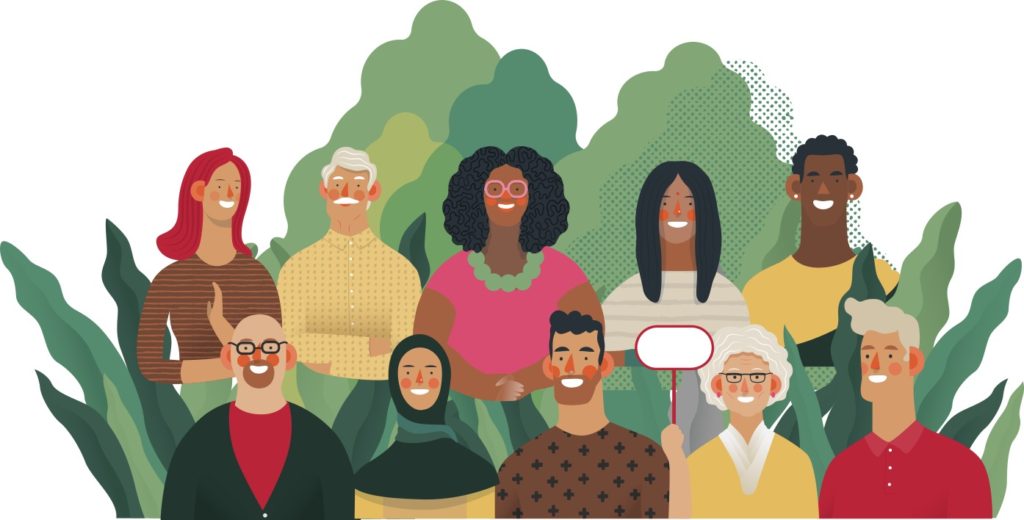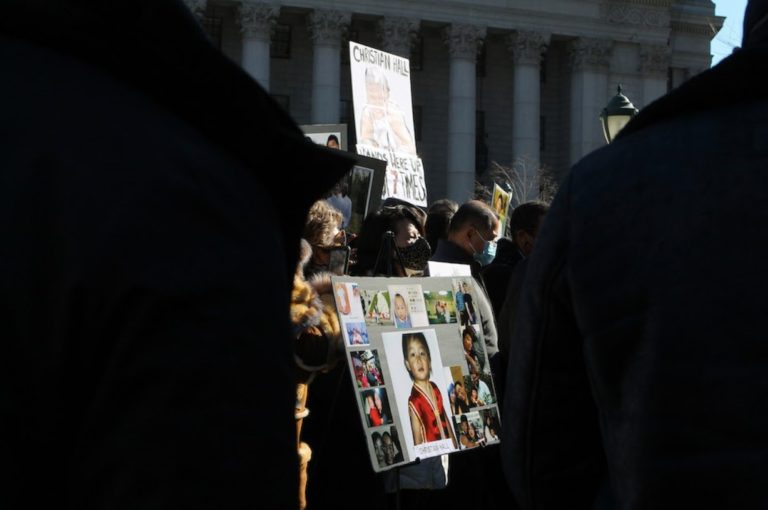
Photo courtesy of Leading Hand.
What does it really mean to love your neighbor? It means more than saying you care about the person who lives next door. It means caring about the social, economic, political, environmental, and personal conditions of all people, regardless of any characteristic. It means using whatever gifts and talents and privileges that you may have to support others. Anything less is hypocritical and an insult to the people you claim to care about.
To love your neighbor means to love all of your neighbors. It means to love your gay, lesbian, bisexual, transgender, and non-binary neighbors. It means to love your disabled and neurodiverse neighbors. It means to love your Black, brown, Indigenous, Asian, and white neighbors. It means to love your immigrant neighbors and your undocumented neighbors and your neighbors who are refugees or asylum seekers. It means to love your neighbors of every religion and those of no religion at all. It means to love your impoverished and working-class neighbors. It means to love your neighbors who use drugs or your neighbors who are experiencing homelessness. It means to love all of your neighbors non-discriminately.
Photo courtesy of Bettmann Archive. Quote added by Cassi Niedziela.
To love your neighbor is to care about their fundamental human rights. The first Article of the United Nations’ Universal Declaration of Human Rights says that “all human beings are born free and equal in dignity and rights,” and Article Three says that “everyone has the right to life, liberty, and security of person.” To love your neighbor is to protect these fundamental rights from being denied. It is to demand justice when a Black man is denied his right to life when he goes for a jog and is fatally shot. It is to demand accountability and radical transformations of the systems that perpetrate violence against living, breathing humans.
To love your neighbor is to care about the safety of the communities in which they live. This does not mean to over police and over criminalize, it means ensuring that people feel safe walking their own streets and working to reduce domestic violence. It is to advocate for common-sense gun legislation so that people can go to school, the grocery store, and concerts without fear of gun violence. It is to push for rehabilitation for people with drug addictions so that they can work towards recovery instead of being confined to a cell.
To love your neighbor is to care about the medical care to which they have access. It is to push for expanded access to health care so that all people can have accessible, affordable, and equitable care when they need it. It is to demand that no one should be afraid to go to a hospital or call an ambulance for necessary medical attention out of fear of thousands of dollars of medical bills. It is to recognize the vast disparities in health outcomes in the United States based on race, place, and socioeconomic status, and to demand quality care for all people because healthcare is a right for all, not a privilege for the wealthy.
To love your neighbor is to care about the conditions in which they work. It is to demand wages that match the cost of living. It is to respect and protect essential workers who have risked their own lives during the pandemic so that society can continue. It is to value all types of workers, from migrant farmworkers who pick fruit in blistering heat to middle school teachers who are quite literally shaping the next generation, and to fight for them to work in safe conditions. It is to recognize that all workers deserve to be treated with respect and dignity in and out of the workplace and that the workplace should be free from all forms of discrimination and harassment.
Photo Courtesy of Carlos Chavarría for The New York Times.
To love your neighbor is to care about the air that they breathe and the water that they drink. It is to acknowledge that climate change is real and already happening, as evidenced by the rise in global temperatures, shrinking ice sheets, and a record number of extreme weather events. It is to recognize that the effects of climate change will impact people living in the Global South first. It is to understand that communities of color in the United States are more likely to “live near polluters and breathe polluted air,” particularly impacting those living in poverty, and to demand environmental protections to save not only the planet but the multitude of organisms living on it. It is to dismantle the systems that have allowed for this environmental racism and to demand environmental justice.
To love your neighbor is to care about how historical wrongs have manifested into contemporary injustices. It is to recognize that the United States was built on the land of Indigenous peoples, with the forced labor of enslaved peoples, and with a promise of liberty and justice for all that has been denied for many throughout the nation’s history. It is to know that systemic racism invades every sphere of this country’s institutions, creating countless disparities and obstacles for people of color to overcome. It is to understand that each and every one of us has a lifetime’s worth of learning and unlearning so that we can all work towards a nation that truly does ensure liberty and justice for all.
To love your neighbor is to right the wrongs they experience on a daily basis. To claim that you care about someone and then hypocritically fail to act in a way that protects and uplifts them is to deceive yourself and those around you. We must all act on the love of our neighbors, not just speak about it. We must support policies that support them. We must practice radical empathy and dismantle the systems that hurt them. We must vote for politicians who will protect them, and we must hold our elected officials accountable for their promises. Then, and only then, will our neighbors be truly loved.


